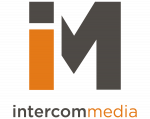The year 2022 is expected to be significant for the hospitality industry. Covid-19 has been effectively controlled in the majority of countries. The ability of the hotel sector to adapt, develop, and improve itself will be critical to its success.
In terms of improvement, the first thing a hotelier should consider is increasing hotel occupancy. Upgrading your hotel technology, specifically your property management system, to a cloud-based hotel PMS software, is a solid starting step.
If you’re not sure how a piece of technology may help you fill rooms, we’ve compiled a list of pointers to show you how investing in the correct cloud-based hotel PMS system is the first step toward a full house.
1. Efficient Automation of Tasks
Recurring activities can be automated to remove the possibility of human error and increase efficiency. Your PMS will provide numerous reliable reports and data about your company, which may assist you in making the best decisions possible.
You can use a PMS to track your progress, obtain statistics, and tweak your processes to make them more efficient. You can also use length-of-stay limits to increase occupancy rates and conduct revenue management by using a dynamic pricing strategy.
Rates and inventory can now be updated across all channels with a single click, allowing you to sell more rooms through OTAs (Online Travel Agencies) and boost your online presence.
2. Better Systems Integrations
PMS suppliers can integrate Channel Managers, Revenue Management Systems, CRS and CRM solutions, Website Booking Engines, Payment Gateways, Point of Sales Systems, and more!
Returning to the basics, these are the two key benefits that such linkages provide, which apply to all sorts of hotels:
With a Channel Manager, you can effectively manage your distribution channels thanks to real-time prices and availability.
Rates and yield management functionalities, as well as linkages to cutting-edge Revenue Management Systems, have improved revenue management.
3. Enhanced Guest Experience
Hoteliers will benefit from a cloud-based PMS not just in terms of improving the guest experience, but also in terms of increasing customer loyalty, occupancy rates, and revenue.
Once the reservation is finalized, you may send email confirmations through numerous channels, such as SMS, email, and so on, using a hotel property management system.
4. Manage Guest Data Efficiently
A PMS helps you manage guest data and information much better, in addition to enabling quicker check-in and check-out operations, making everyday duties efficient, and ensuring better administration of reservations.
5. Time Savings
A hotel PMS will allow you to automate processes like updating rates and room inventories, sending emails before and after arrival, invoicing your guests, amending reports, and so on.
6. Revenue management
A PMS is a huge step toward enhancing hotel revenue management indicators including occupancy, RevPAR (Revenue per Available Room), and ADR (Average Daily Rate), all of which are important in determining a hotel’s financial performance. While GDS and OTA integration can help maximize these rates, revenue management systems can help a manager understand how to tweak operations to improve results and keep costs under control. This module assists in increasing overall revenue from rooms by utilizing forecasts to optimize occupancy and determining whether or not to boost or drop inventory prices.
7. Ease of Use
The purpose of any PMS system should be to give executive management and front-line personnel the tools they need to run the hotel profitably, not to waste their time learning and managing it. When shopping for a new PMS, look for one that offers a rich touch/graphic user interface, is functional for both novice and experienced users, and requires low training.
Employees can get on with what matters most, namely the visitor, with an intuitive and easy-to-use system that does not require extensive training and is free of the hassles, blunders, and costs associated with more onerous alternatives.

